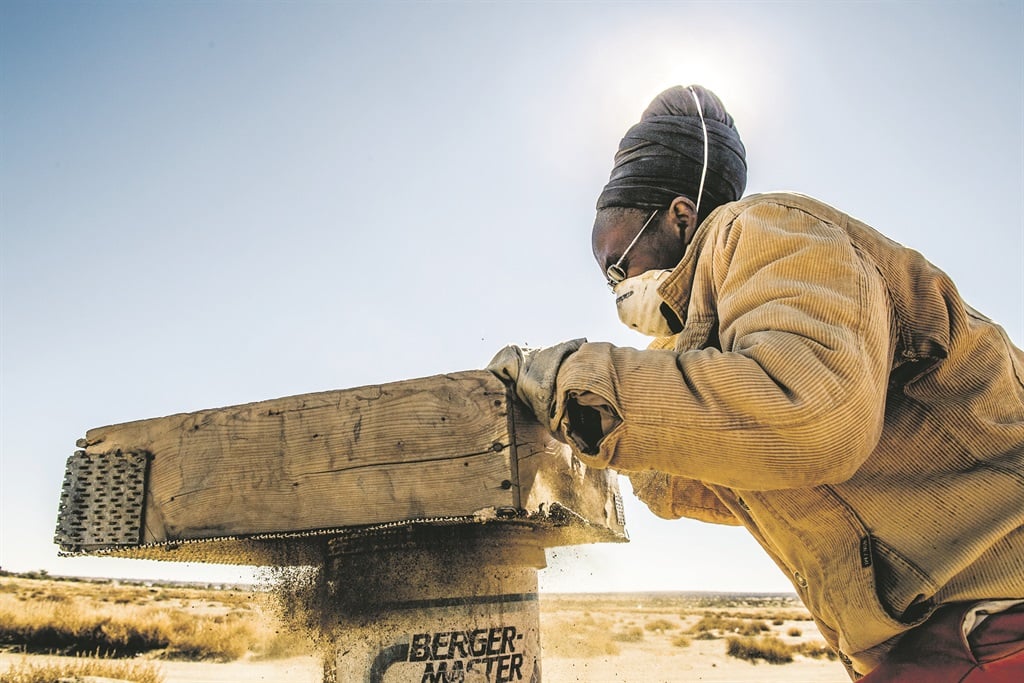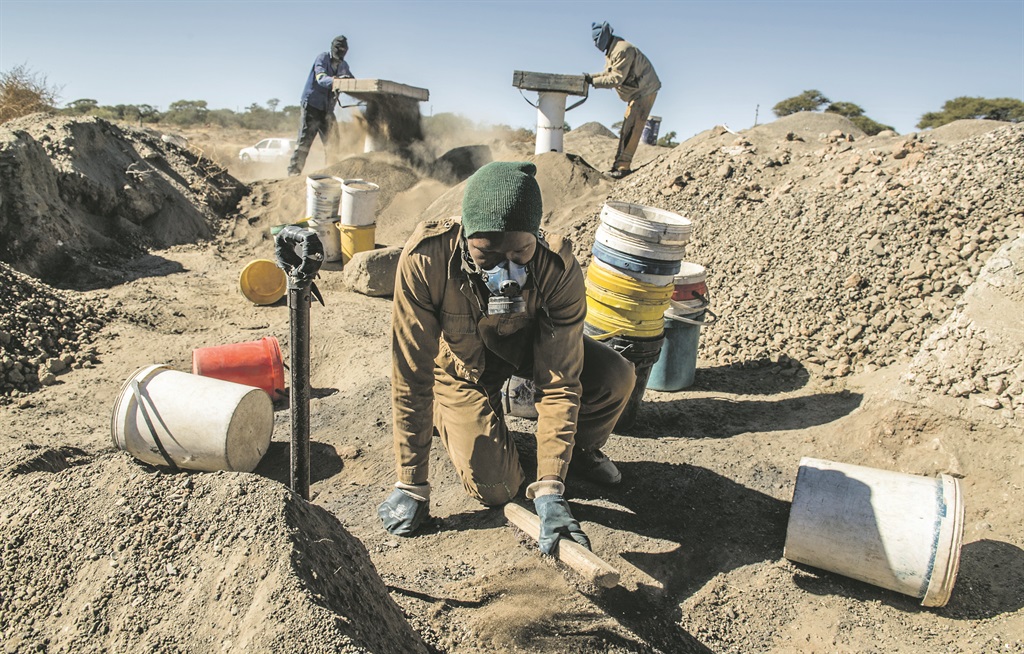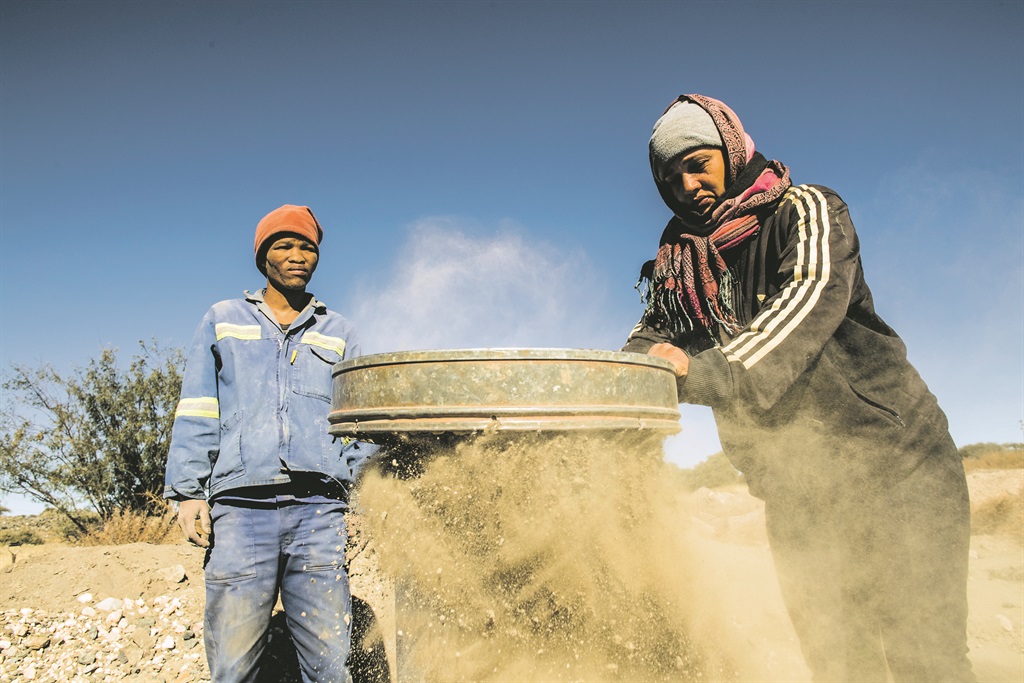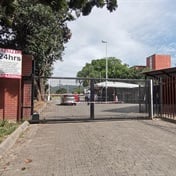
The artisanal miners of Kimberley are breaking new ground by putting the land to good use to provide economic opportunity. Msindisi Fengu went to visit them to find out more about what they are achieving.
Swapping his orange prison overall for hard-wearing clothing to earn a living crushing rocks and sifting gravel, in the hope of finding a diamond, is the best decision Tebogo Taku has made.
Taku (43) has been in and out of prison several times. His longest stay was when he was sentenced to four years for theft.
Shortly after his release, he was arrested again for armed robbery, but he was released due to lack of evidence in June 2015.
The father of two from Warrenton in the Northern Cape has since changed his criminal ways, and embarked on a journey that has led to his being one of 300 miners to benefit from mining permits issued last month by Deputy Mineral Resources Minister Godfrey Oliphant.
Their permits allow them to mine diamonds on more than 600 hectares of land owned by Kimberley Ekapa Mining Joint Venture Formation (KEM-JV) in Kimberley.
Taku said a decision to turn his life around came a day before he was released from prison in 2015.
“Crime was my life. I’ve done things that I’m not proud of so I can survive. That day, when I heard there were zama-zamas (illegal miners) making millions here from sifting through the ground looking for diamonds, changed my life.”
A NEW LIFE
Following his release, Taku took a taxi to Kimberley to join the zama-zamas. When he arrived on site, he found a shack settlement and immediately began building his shack.
Taku said for three months he relied on help from others because he found nothing.
Then, one Tuesday, that all changed.
“I can still remember that day. It was around 11am when I felt the stone [diamond] on my hand. Since then, I’ve never forgotten that feeling. It’s like my ancestors visited me in my sleep. If you know that feeling, then you’d know what I’m talking about. That’s how I feel every time I get a stone. I feel the spirits of ancestors.”
For that first discovery he scored R36 000 on the black market and bought clothes for his daughters, a television set and furniture for his home.
“That was the biggest find. For someone who had been living life doing crime to now get that kind of money without bothering anyone,” Taku said.
He said every time he finds a diamond and sells it, he puts money into the bank accounts of his children to ensure they are provided for.
However, the lives of zama-zamas were not easy, and Taku and his fellow miners were always in conflict with the mining company’s security guards.
They would often be arrested, and because they were forced to sell their finds on the black market, this meant they didn’t get the full value for their discoveries.
This is slowly changing as regulation kicks in.
When the Kimberley Artisanal Miners, now known as Northern Cape Artisanal Small Scale Miners, were finally granted permits last month as part of a plan to formalise them, Taku said now they can mine in peace, and in step with the law.
Lucky Seekoei, chairperson of the miners’ organisation, said the squabbles between the zama-zamas and the mining companies over rights to the mine had lasted for 15 years. He said 300 miners are currently registered with the organisation as part of plans to regulate themselves.
“The permits have brought much relief to us. There has been an influx of people coming in to mine. We agreed to regulate ourselves and we have 30 cooperatives each made up of 10 people that are registered with us.”
Seekoei said 28 cooperatives were already registered with the Companies and Intellectual Property Commission.
Women, he said, make up only 20% of the miners.
“We are not discriminating against anyone, but we only allow people older than 19 years to work,” he said.
He said they were also under pressure from the SA Revenue Service and Hawks to comply with legislation.
Plans were also afoot to register diamond buyers to avoid the miners being robbed of the true value of their diamonds. Part of this process is reporting black market dealers to the Hawks, Seekoei said.
“We know this is not going to be easy as we will be targeted. Our lives are in danger, but we urge our members not to go to the black market dealers. We need to regulate this thing for it to work. We have asked them to open bank accounts so they can save their money.”
He said members would contribute 15% of their profits to the organisation. Of this contribution 5% would go towards administrative costs and 10% towards their retirement fund. They also plan to introduce a medical aid for miners.
He said it was up to individuals in cooperatives to decide their working hours. The miners only earn income for the diamonds they find so how much income they earn is up to them.
IN IT TOGETHER
“No one is working for the other. Cooperatives decide where they want to work. There are no fights. We are in this thing together and we understand this is the only way we can get a living,” Seekoei said.
One of the few women who work on site is Fahrana Dawson. Dawson, a mother of two whose children live in Kimberley, said she has struggled to find work and decided to try her hand at mining diamonds.
“I’ve been here for four months now. I once found a diamond worth R200 but I’m not going to give up. This is going to be my life.”
Another miner, Obakeng Monyera, said not enough is being done by government to support their cause. Monyera said government needs to provide equipment for miners.
“We need grinders to be able to do our jobs properly. We also want government to deal with this new trend of recycling companies who come here to collect soil under pretence they are going to recycle it somewhere, but we know they are looking for the stones.
“Other zama-zamas in the country also need something like this. Government needs to reclaim our land so we can feed our families because we are unemployed.”
Gert Klopper, spokesperson for Petra Diamonds, a partner to KEM-JV through its Crown Resources subsidiary, said the company was pleased it could be part of legitimising artisanal mining.
“We have always believed, and have for some time been making proposals in this regard, that there is space in the diamond mining industry for artisanal miners who are better positioned to exploit resources that are non-critical and/or marginal to the bigger operators, providing their activities are regulated and fall within the legal framework for mining in South Africa.
“Such artisanal mining makes a real socioeconomic contribution, in contrast with illegal diamond mining which benefits only those who illegally purchase the produce of those extracting the minerals at a fraction of the real value.”
MAKING IT POSSIBLE
Klopper said the company had to sacrifice some of its resources to make the deal possible. He said the resources in question were, however, non-critical to the operation of the mine and did not present a significant financial impact.
“Any financial losses are more than offset by the decreased cost of maintenance and security due to the resolution of the conflict between the company and illegal miners. Past illegal mining has always been a distraction from our core legal mining activities that has required directing of non-critical resources and related costs to maintain an acceptable security standard around the legal operating areas.
“Security remains a high priority for normalised operations and will have to remain in place, preventing splinter groups and individuals from opportunistic ground or property theft and damage.”
Klopper said the specific solution that was captured by the agreement was probably unique to Kimberley.
“Kimberley being the only place where the ‘flooring’ system, that is where Kimberlite rock was left on flat areas to weather before processing, was used. Although the principle might apply elsewhere, the details might be significantly different.”
He said the company has been contacted by several industry players and legal advisors to share the nature and success of the legalisation transaction.
Meanwhile, for miners such as Taku and Dawson, the deal means they can use the land legally to build a future for their families and be part of the economy.




 Publications
Publications
 Partners
Partners











